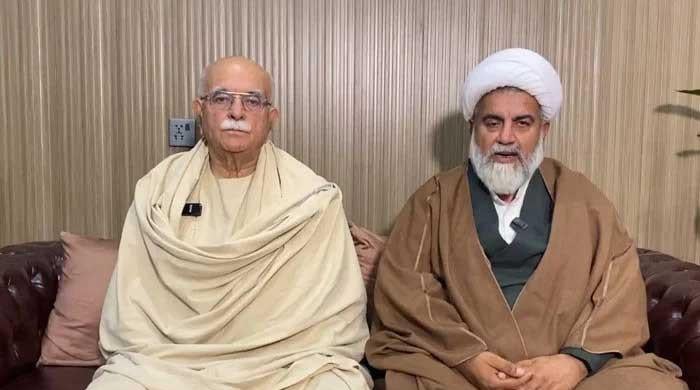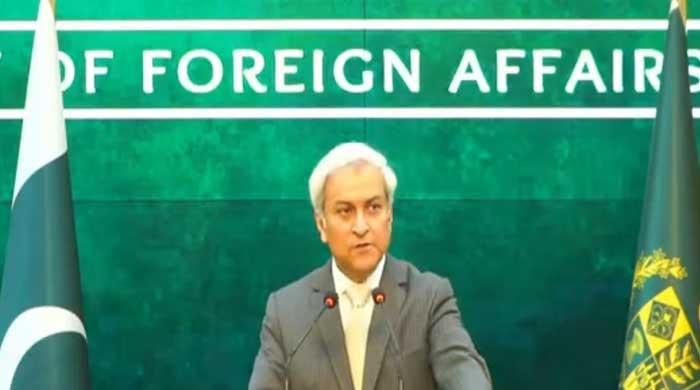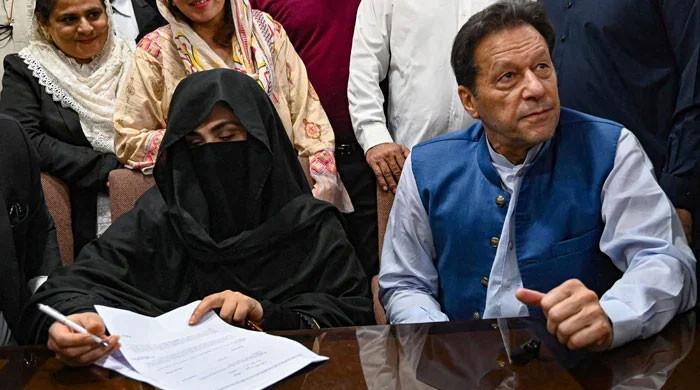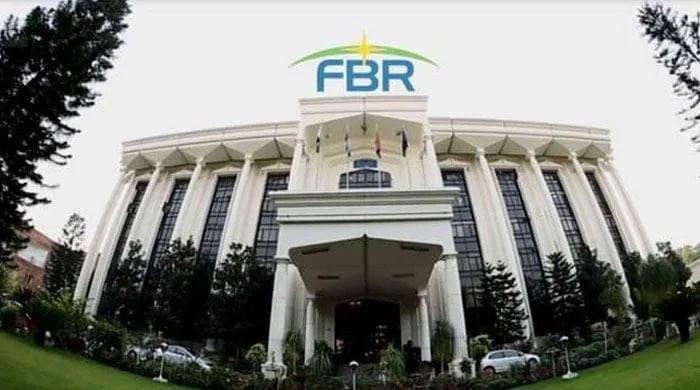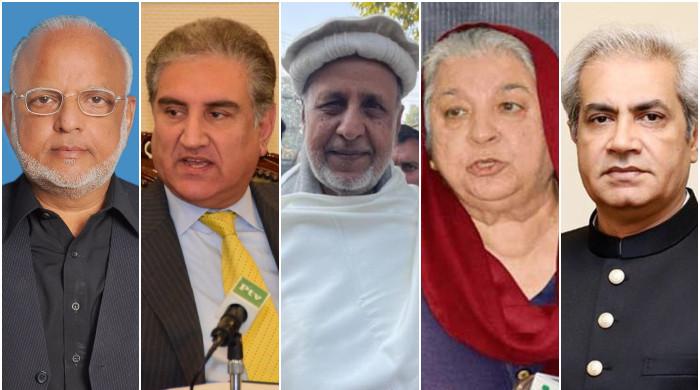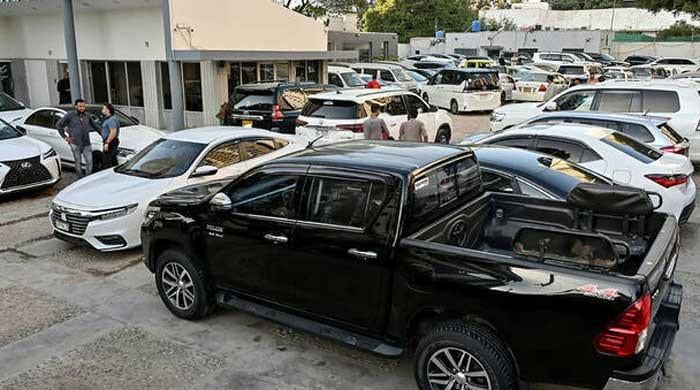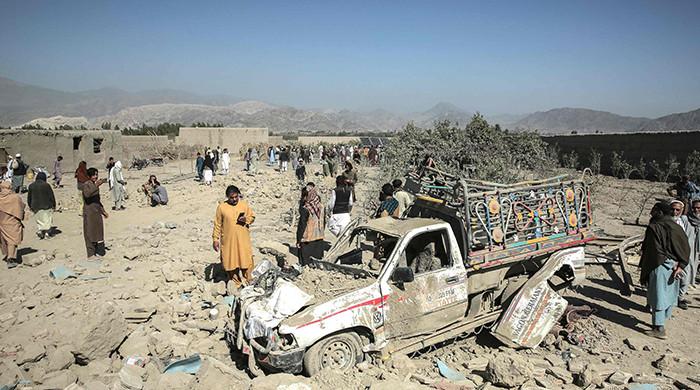EU acknowledges Pakistan's commitment to UN treaties
The 27 member body also recognised Pakistan as the fifth largest GSP beneficiaries in context of EU imports
February 11, 2020
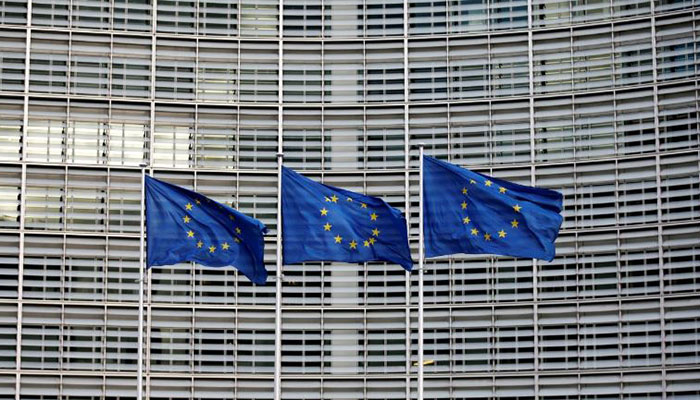
The European Union (EU) in a report has acknowledged Pakistan’s commitment to maintaining and meeting the obligations to UN treaties and has also recognised the country as the fifth largest GSP beneficiaries in the context of EU imports.
The EU’s acknowledgement came in the third biennial report released by the High Representative of the Union for Foreign Affairs and Security Policy on Monday.
The report also includes 10 Joint Staff Working Documents written by the European Commission and the European External Action Service. Out of 10, nine documents assessed the performance of each beneficiary of the Generalised Scheme of Preferences (GSP)+ arrangement, said a press release.
The regional body stated that the report looks at the extent to which GSP countries make the most of the scheme.
Also read: EU gives Pakistan favourable review for GSP+ status
“It [report] also examines a number of overarching issues such as the freedom of civil society to operate, progress on tackling child labour, and environmental and good governance concerns,” said the press release.
The GSP is the EU trade policy’s main tool to support developing countries and their efforts to pursue sustainable development. Pakistan was granted GSP+ status by the regional body in 2014.
The report shared the new government of Prime Minister Imran Khan has “shown a keen interest in maintaining GSP+ for its economic and trade benefits”. The report also noted that the government is also interested in the GSP+ arrangement as an incentive for sustainable development and good governance.
In its assessment of Pakistan, the reported remarked that Islamabad has “shown commitment to maintaining ratifications and meeting reporting obligations to the United Nations Treaty Bodies for the 27 UN Conventions”.
Also read: EU, Pakistan agree on new engagement plan for trade, economy
The report asserted that Pakistan was making some progress on adopting laws on the protection of women and children rights; elimination of honour killings; protection of transgender persons; protection of the environment; and good governance.
The report took into account the government’s successful fight against drugs and pointed out that Pakistan leads a UN initiative on education in this regard. It also recognised Pakistan’s removal from the list of cannabis resin production countries.
The EU recognised that Pakistan’s launch of a national Child Labour Survey was an important step and also lauded the government for initiating the implementation of the National Action Plan on Human Rights.
The report recognised the end of military courts after the Parliament decided against approving its extension in March 2019.
Human rights ministry lauded
In the report, the regional organisation termed the institutional and capacity development of the Ministry of Human Rights, the Treaty Implementation Cells (TICs), and Human Rights provincial departments, as well as the cooperation with stakeholders a positive development for the country.
“The Ministry of Human Rights has begun to establish the Human Rights Information Management System (HRIMS) in cooperation with United Nations Development Programme (UNDP) and consultation with the Office of the High Commissioner of Human Rights (OHCHR). This will strengthen the data collection for Treaty Bodies and GSP+ reporting,” said the report. But noted that a public announcement in this regard “would be welcomed” by the body.
Also read: FM Qureshi to meet NATO and EU leaders in Brussels
The organisation also acknowledged the ministry’s efforts to lead a national awareness campaign on women's and children's rights with the EU’s help. But it noted that the efforts would go in vain if t sustained political focus combined with the necessary resources is not given to it.
Concerns of the EU
However, the EU has expressed concern over the delays in the progress of the salient draft legislation on enforced disappearances and labour rights.
The regional body also expressed concern over the delay in the passing of Anti-Torture Bill after it was submitted in the parliament.
In the report, the EU has also expressed concern regarding the space being given to the civil society and the suppression of dissenting voices. It labelled the trend as “negative” in these matters and noted that a high level of impunity was being followed for perpetrators of crimes against journalists.
The EU has also expressed “serious concern” regarding the “broad and vague grounds” for the cancellation of the registration of the international non-governmental organisations (INGOs) operating in the country.
The report stated that the incumbent government’s “drive against corruption is high on the agenda” but noted that the National Accountability Bureau was being widely criticised by the opposition for initiating cases against their leaders.
Also read: EU monitors team says Pakistan election not a level playing field
Another concern expressed by the 27-member body is the delays in the appointment of a commissioner for the National Commission for Human Rights. It noted that the delay was “hampering the operation of the institution”.
“Other challenges to the implementation and enforcement of the UN Treaty Body Obligations include: (i) the devolved provincial powers (18th amendment to the Constitution of Pakistan); (ii) limited institutional coordination and lack of institutional capacity, scarce human and financial resources; and (iii) overriding army and security (counter-terrorism) concerns,” said the report.
Anti-corruption framework
The report has also acknowledged the efforts being made to strengthen the anti-corruption framework, in the country and called for its encouragement.
The report also recognised Pakistan’s “high-level political commitment” in June 2018 to implement the Action Plan given by the Financial Action Task Force. But stated that its outcomes are which are yet to be determined.
The EU also called on Pakistan to increase the country’s Anti-Narcotics Force. But warned that challenges remain in closing the routes for smuggling and enhancing cooperation within region.




